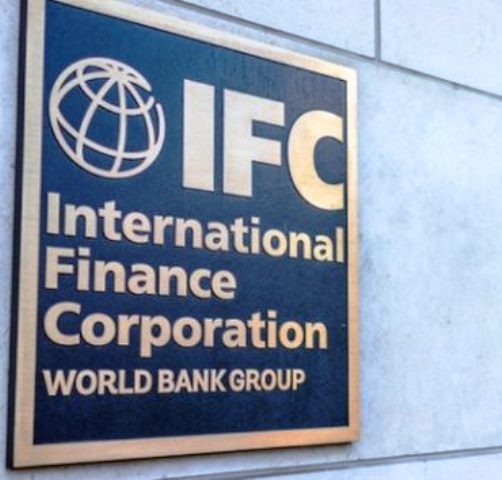MON 19 APRIL, 2021-theGBJournal- Amundi, leading European asset manager, and IFC, a member of the World Bank Group, today published the third edition of their Emerging Market (EM) Green Bond Report 2020.
Amundi and IFC have partnered since 2018 to report on growth drivers in emerging market green bond investments. The report provides an overview of emerging market (EM) green bond developments over the past year and discusses policy and regulatory changes driving issuance.
As countries start to move out of this unprecedented global crisis, recovery paths in emerging markets are expected to be widely divergent and will require substantial fiscal policy support. Emerging economies will need to incorporate green objectives into their recovery, with efforts not only to mitigate climate risks and environmental challenges, but also to increase resilience to future shocks.
Yerlan Syzdykov, Global Head of Emerging Markets at Amundi, comments: “Through this unique and innovative partnership with IFC, Amundi remains committed to the development of the green bond market in emerging countries through vigorous and robust engagement efforts with different market participants to boost both supply and demand of green bonds. Financial markets are set to play a key role in supporting sustainable projects and the outlook for emerging market green bond issuance remains robust, with issuance expected to hit $100 billion over the next three years.”
The post-pandemic recovery is set to provide significant opportunities for green and sustainability-related projects, including renewable energy, green urban infrastructure and climate-smart agriculture. According to IFC, investment opportunities in emerging markets could generate over $10 trillion by 2030 and create over 200 million jobs in green sectors.
Despite last year’s economic challenges, the global green bond market proved resilient, achieving a key milestone of $1 trillion in cumulative issuance since 2007, with issuance of $280 billion in 2020. During the period, emerging market green bond issuance was robust with 174 green bonds amounting to $40 billion in issuance from 101 issuers. Seven emerging markets issued green bonds for the first time.
East Asia and the Pacific accounted for the largest share of green bond issuance in emerging markets, at 76%. In 2020, China remained the largest green bond issuer in emerging markets, despite a fall in issuance, from over $30 billion in previous years to $18 billion, due to the COVID-19 crisis and a government push to issue pandemic-related bonds. Over half of China’s issuance occurred in the second half of the year, signaling a rebound in the green bond market.
Outside China, emerging market green bond issuance rose 21% in 2020 to $22 billion, representing faster growth than the 17% increase in global green bond issuance. Largest emerging issuers include Chile, Brazil, and Indonesia, with seven début issues including Egypt, Kazakhstan and Saudi Arabia.
2020 also saw continued interest from a diverse pool of issuers, with $300 million in issuance from non-financial corporates. Financial institutions make up 50% of cumulative green bond issuance by volume in emerging markets, which contrasts with 19% in developed markets. Nearly half of non-financial corporate green bond issuance in EMs are in the power and utilities sector, while issuance in the construction and real estate sectors has also steadily increased.
Jean Pierre Lacombe, Director of Global Macro & Market Research at IFC, commented: “Robust investor appetite and increasingly supportive policy environments will continue to support the growth of green bond markets in emerging markets. This is now critically important, with investment for sustainable development urgently needed to lessen the pandemic’s profoundly negative social and economic consequences. This is especially true as regards the damage done to efforts to reduce global poverty, where several additional years will now be needed to regain ground lost due to COVID-19.”
Key determinants of the potential for EM green bond market growth include commitments to green bond issuance momentum and capital market development in alignment with the UN Sustainable Development Goals.
Sustainable financial policies and appropriate regulatory frameworks are necessary to encourage capital flows to green projects and sectors. A number of global initiatives could further mobilize emerging market green bond market development and address the challenges of data reliability and comparability for institutional investors. For example, the development of benchmark green taxonomies, implementation of the Task Force on Climate-related Financial Disclosure’s recommendations, and efforts by central banks that focus on capacity building and technical assistance for emerging markets could strengthen investor confidence.
Twitter-@theGBJournal|email: govandbusinessj@gmail.com










